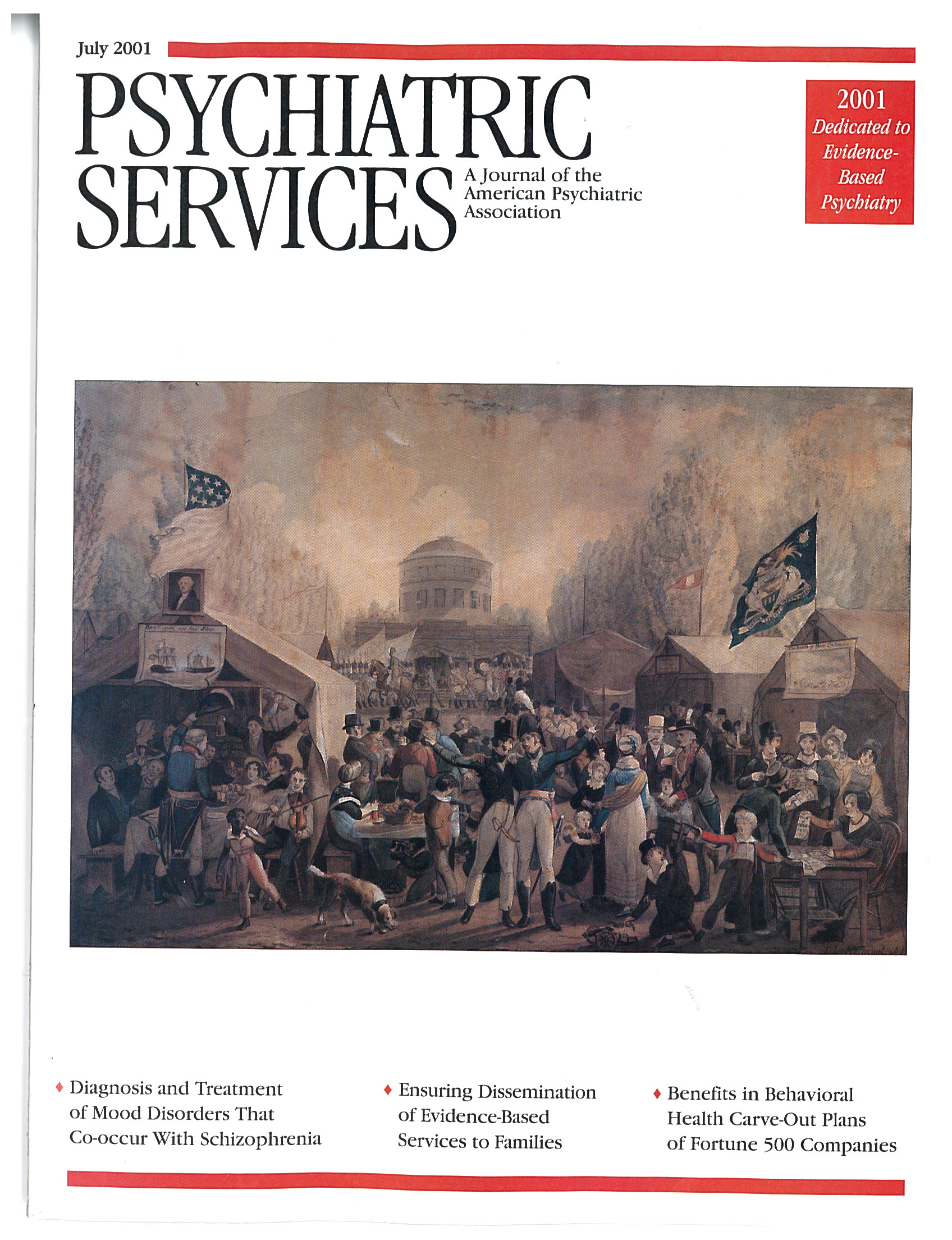Family Psychoeducation
A special focus of Psychiatric Services this year is on implementing evidence-based practices in the treatment of persons with severe mental illness. In this issue Lisa Dixon, M.D., M.P.H., and her colleagues continue the series with an article on family psychoeducation, a service rarely offered in treatment settings but that evidence indicates is effective in reducing relapse and rehospitalization. These authors describe strategies to overcome barriers to implementation of family psychoeducation (see page 903). In a research study on family services, William R. McFarlane, M.D., and his coauthors examined initiatives in Maine and Illinois to disseminate family psychoeducation programs. They found that attitudes of clinicians and administrators were key elements in successful implementation; consensus building and adequate funding were also critical (see page 935). Finally, Dr. Dixon and her coworkers interviewed 37 family members who participated in an established psychoeducation program and found that even six months after the program ended, the family members felt less displeasure and worry about their ill relative (see page 965).
Mood Disorders and Schizophrenia
Among patients with schizophrenia, depressive and manic symptoms may occur as a component of their psychotic illness or as a separate syndrome. How the clinician fits such symptoms into a diagnosis can have a bearing on the treatment selected as well as on outcomes for these patients. Michael A. Escamilla, M.D., shows how changes in disease classification over the past two centuries led eventually to the current diagnostic system and points out that more recent scientific findings will likely drive changes in diagnostic methodology in the coming years. He discusses how clinicians can distinguish between symptoms rooted in psychotic illness and those stemming from a separate mood disorder. This paper is part of a series on the treatment of depression edited by Charles L. Bowden, M.D. (see page 911).
Panic Attacks and Psychotic Disorders
Panic attacks have been reported to occur at higher-than-expected rates among persons who have psychotic disorders. In this issue, Renee Goodwin, Ph.D., and her colleagues report that 15 percent of a sample of 120 persons with severe psychotic disorders who had enrolled in a psychiatric rehabilitation study also had panic attacks. This group also had higher rates of other comorbid disorders, such as depression, substance abuse, and phobias, than those who did not have panic attacks. Those with panic attacks reported a lower quality of life both before and after participating in the rehabilitation program, and they also had lower scores on other outcome measures after completion of the program. This paper is part of a series on anxiety disorders edited by Kimberly A. Yonkers, M.D. (see page 920).
Liability in Forensic Evaluations
In this month's Law and Psychiatry column, Paul S. Appelbaum, M.D., reviews a recent Colorado case in which a psychiatrist who had been retained by an insurance company was sued for his conduct in the performance of an independent psychiatric examination. Dr. Appelbaum discusses the absolute immunity to which trial witnesses are entitled and the "quasi-judicial immunity" that applies to some of the services that mental health professionals might provide in legal cases. However, he notes that clinicians who conduct forensic evaluations do not enjoy such immunity when they are sued for professional malpractice by the party who employed them, and he advises those who do forensic work to verify that they have appropriate insurance coverage (see page 885).
Spending and Access to Care
What is the relationship between the amount spent on behavioral health care and access to treatment? Brian J. Cuffel, Ph.D., and Darrel Regier, M.D., M.P.H., examined claims and benefit data for 30 behavioral health plans to determine whether key characteristics of the health plans mediated the linear relationship between spending and access. They found that plans that included an integrated employee assistance program provided the greatest increase in the treated prevalence rate—1 percent—for each dollar increase in the per-member per-month rate (see page 949).
Briefly Noted…
• The Rehab Rounds column describes a social skills training program that focuses on helping people with schizophrenia find and keep a job (see page 891).
• Use of a personal digital assistant to reduce medication errors at a psychiatric hospital is discussed in the Clinical Computing column (see page 883).
• The books section leads off with a review of a book that reveals the complexities of how the Tuskegee syphilis study is viewed today (see page 977).

